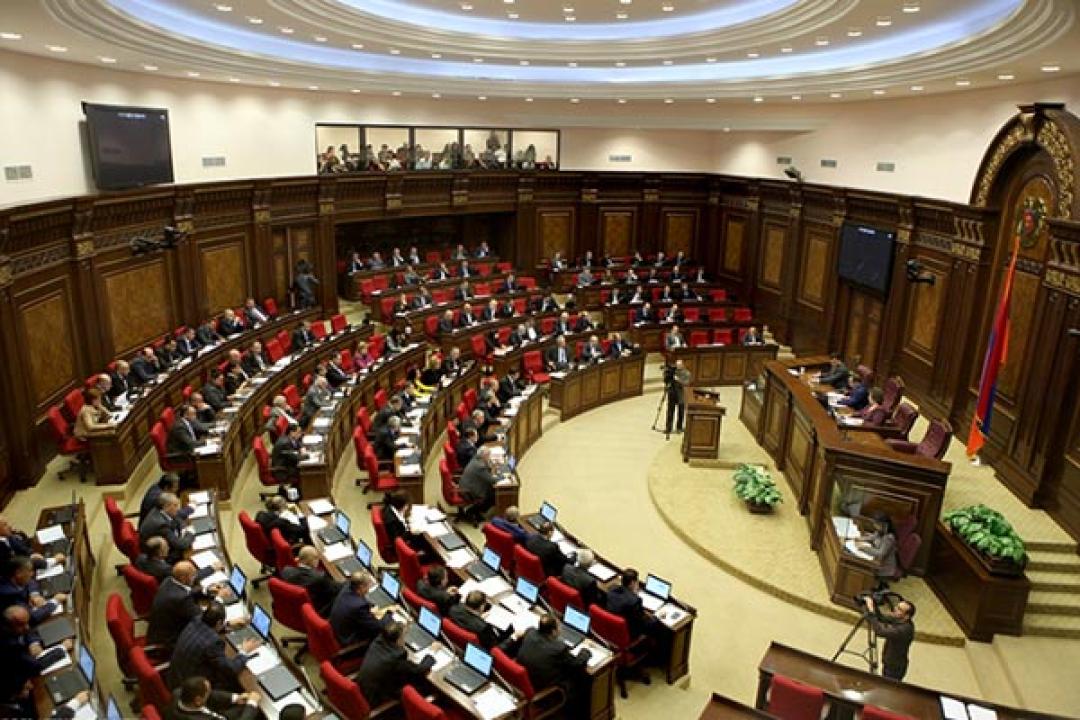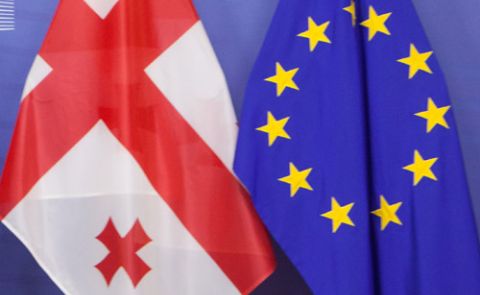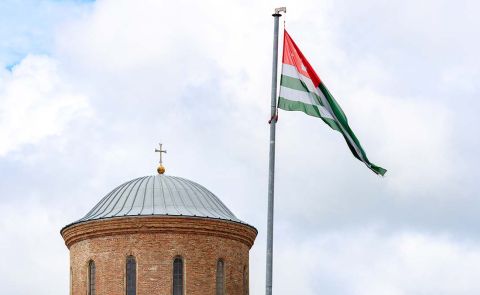
Armenian parliament passes constitutional law for political parties in its first reading

On 10 December, the National Assembly of Armenia passed amendments to the constitutional law on political parties and related laws by 99 votes for and 1 against in its first reading, reported arka.am.
Before the vote, Gurgen Baghdasaryan, a parliamentarian from the opposition Bright Armenia party, said that at this stage the party would vote for the bill, however, he expects that the authors of the draft will take into account the opposition's comments at the second stage of the voting. In response, a member of the ruling faction, Hamazasp Danielyan, who represents the bill, stressed that the provisions that cause the opposition's anxiety will be discussed before the second reading. He also stressed the importance of the adoption of the law at the second reading by the end of the year.
The head of Bright Armenia faction Edmon Marukyan said that the law on parties would not stabilise anything and has nothing to do with the stabilisation of the political system. “Because we want to change two provisions of just a fragment of the whole situation. Are you naïve people? What law on parties? Look how today press, media, TVs which consume the public multiplex work in Armenia, how they decide to “block” this or that person, not to show him. That’s it. What can the law on parties do? How will you heal the political system? With money… let’s spend money make a hero from this person and a traitor from that one. How will you stop it with the law on parties? Have you written anything about it? For instance, have you written that the television consuming public multiplex cannot but sanctify the parliamentary force? You haven’t written? I propose [you]… write because the political system in Armenia has remained as ill as it was. We have an ill political system and with this ill system we head to snap elections. And we think that by changing this law we will have fair elections,” he said.
The bill provides for the institutionalisation of parties and the party system, a multi-party system and the promotion of ideological pluralism, transparency of party financing, increased transparency and accountability, improvement of tools for public control over party funds. It also plans to reduce corruption risks, separate political activities and business, reduce the influence of private interests on party activities, stimulate involvement in party activities and encourage internal democracy within parties. The major changes include:
1) Total state funding of political parties will increase from €200,000 to €1,000,000, a new allocation formula will favour smaller parties, and the threshold for parties to qualify for state funding will be decreased from 3% to 2% of the total votes cast in the previous parliamentary election;
2) State funding would become contingent on a political party filing their financial statements on time and meeting a new 40% gender quota among its internal party leadership;
3) Corporate donations to political parties will no longer be permitted. The annual cap on donations by individual persons will be reduced from €20,000 to €5,000 and can no longer be made through a cash transaction;
4) In order to separate the functions of oversight and enforcement from the election management body, the newly established Corruption Prevention Commission (CPC) would take on the role of overseeing political party finances from the Oversight and Audit Service (OAS) of the Central Electoral Commission (CEC);
5) The requirement for an Armenian political party to have branch offices in the different regions of the country was removed and a new requirement for the party’s programme to include a non-binding aspirational statement on how it will involve women, national minorities and youth was added.
The OSCE Office for Democratic Institutions and Human Rights (ODIHR) welcomed the proposed law to the changes to the party system in the Armenia, offering additional recommendations: 1) eliminating the two-stage registration process for parties; 2) ensuring that services performed by volunteers that normally carry a reasonable expectation of payment are counted as in-kind donations; 3) scaling down the requirement to publish the workplace of donors to merely reporting it to the CPC, without making their personal information public; 4) earmarking some of the state funding specifically for the promotion of under-represented groups; 5) providing adequate resources to the CPC for it to fulfil its new expanded mandate; and 6) further defining the term “gross nature of the violation of the law.”
See Also


BP Strengthens Presence in Azerbaijan’s Offshore Energy Sector

Netanyahu’s Letter to Aliyev: Mutual Trust, Solidarity Following Hamas Attacks, Facilitating Dialogue Between Israel and Türkiye

Azerbaijan Expands JF-17 Thunder Fighter Jet Order from 16 to 40 Units

EU Commissioner and NATO PA Warn Georgia Over Democratic Decline Amid Accession Challenges

